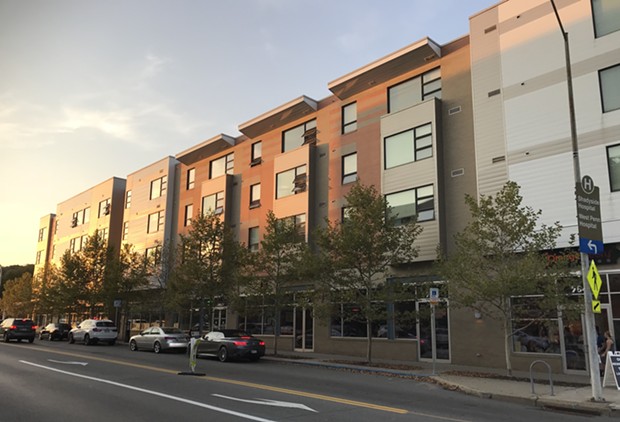Pittsburgh has made significant efforts over the years to fill its affordable-housing shortage. In 2016, the region needed 21,580 below-market-rate units to adequately serve its populace. That figure has shrunk a bit since, and Pittsburgh City Council created a $10 million Housing Opportunity Fund that will help build even more units.
Now the state government may want to get involved with affordable-housing efforts. State Sen. Tom Killion (R-Delaware) has introduced SB-1185, legislation to create a state low-income tax credit.
“This new tax credit will incentivize private investment in new and existing affordable housing in the Commonwealth,” said Killion in a press release. “Affordable housing is an economic driver. It builds state and local tax bases, creates jobs, provides homes in proximity to workplaces, and revitalizes communities.”
The tax credit is modeled after the Low-Income Housing Tax Credit (LIHTC), a federal program that is responsible for the vast majority of the nation’s affordable-housing construction. Developers apply for tax breaks for their projects, and are then required to construct below-market-rate units.
The state funding could be coming at a good time. Rents are rising for many Pittsburghers. And the federal Department of Housing and Urban Development hasn’t been running like a well-oiled machine under secretary Ben Carson. ProPublica reported in August 2017 that “department leadership was also actively slowing down new initiatives.” In March, severe cuts were proposed to many of HUD’s affordable housing programs.
Pennsylvania Housing Alliance director Phyllis Chamberlain said the commonwealth lacks substantial affordable, subsidized units. Housing Alliance's data shows Pennsylvania only has 66 affordable units per 100 low-income households, and only 38 affordable units per 100 very-low-income households.
“Pennsylvania is in need of affordable housing opportunities for low-income residents,” said Chamberlain in a press release. “A state housing tax credit will increase the viability of affordable housing projects for developers and private investors looking to build or rehabilitate properties.”
SB-1185 already has bipartisan support from seven Republicans and five Democrats, including Pittsburgh state Senators Wayne Fontana (D-Brookline) and Randy Vulakovich (R-Shaler).
The proposed state credit would serve households that bring in up to 80 percent Area Median Income (AMI); 10 percent of the funds would be for households at 30 percent AMI. The AMI for the Pittsburgh region is about $56,000 per household per year.


